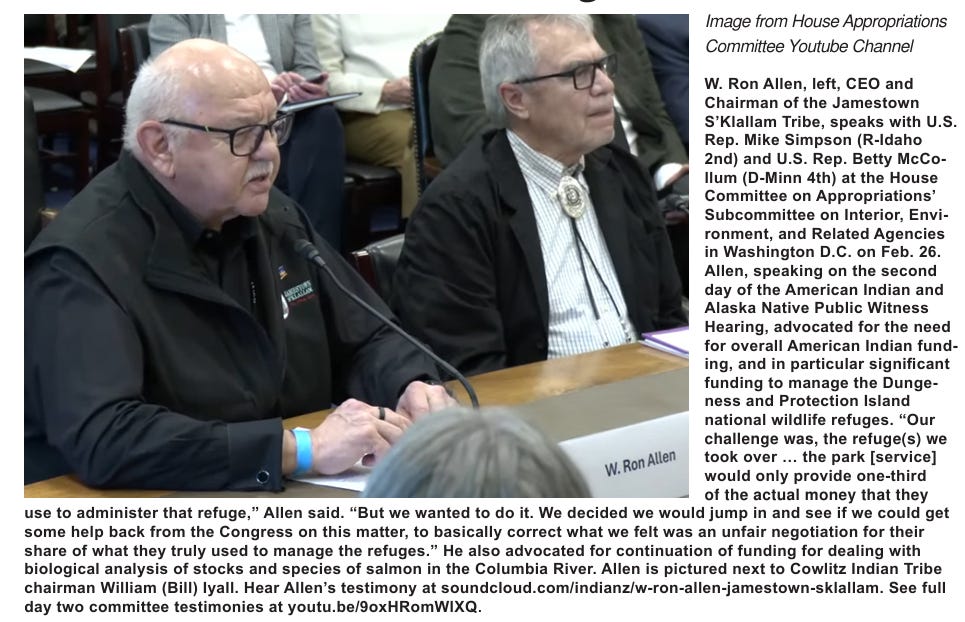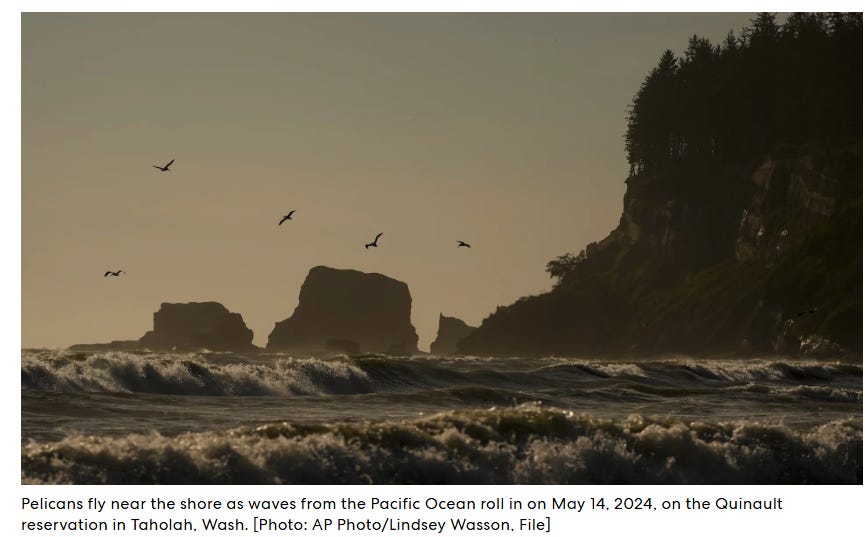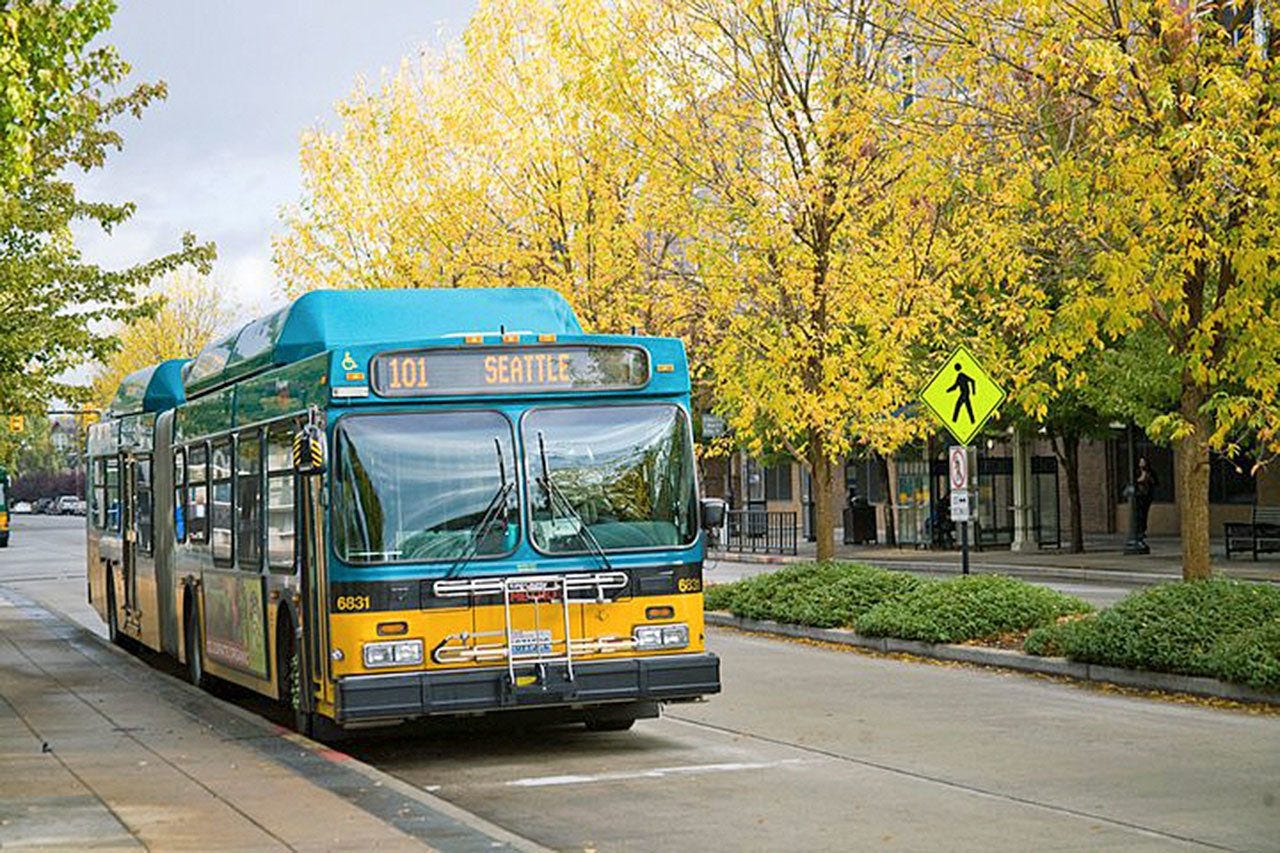Sequim enforces strict RV rules for homeowners—yet turns a blind eye to illegal campers on public roads. While taxpayers foot the bill for climate programs and public events, tribal entities enjoy special perks, tax exemptions, and exclusive funding access. From dam politics to double standards in aging programs, favoritism is shaping Clallam County—and the growing divide between fairness and influence.
You can’t park your RV there, but they can
The City of Sequim’s June 2024 newsletter reminds homeowners that hosting guests in RVs requires a permit, is limited to four times per year, and each stay can only last seven days. No driveway camping. No exceptions.
Except, of course, there are exceptions.
Several RVs—uninsured, clearly immobile, lacking tabs and license plates, and visibly occupied—are sitting in plain sight along public roads. City officials know. Code enforcement knows. But no one is enforcing the rules.
NOAA and tribal funding: Allies or opportunists?
The University of Washington’s Climate Office recently lost federal funding for its Tribal Stewards program.
Previously supported by a grant from the National Oceanic and Atmospheric Administration (NOAA), the program was aimed at building tribal climate resilience. Ironically, a NOAA-funded report had acknowledged how hard it is for tribes to secure reliable funding.
“Trying to do projects by piecing together grants that all have different requirements and different strings attached, without staff capacity is a challenge,” Robert Knapp, environmental planning manager for the Jamestown S’Klallam Tribe, told the Associated Press.
Yet while UW faces cuts, NOAA doubles down on direct funding to tribes. That raises a key question: are these programs about solving environmental issues—or are they more about securing federal dollars for tribal initiatives?
Climate commitment perks—but only for some
The Jamestown S’Klallam Tribe is helping its citizens and descendants access energy-saving home upgrades paid for by Washington’s Climate Commitment Act—a policy that functions as a tax on energy and has helped drive Washington’s gas prices among the highest in the nation.
Tribal members can get state-funded upgrades like new water heaters, heat pumps, and dryers if they meet income limits. A single person can qualify while earning up to $98,595 annually.
In contrast, the median household income in Clallam County is around $68,000. This raises serious questions about fairness, equity, and who actually benefits from climate policy funded by all taxpayers.
Tribal self-sufficiency or federal dependency

Ron Allen, CEO and Chairman of the Jamestown S’Klallam Tribe, recently testified before Congress in support of increased federal funding to manage the Dungeness and Protection Island National Wildlife Refuges. While he emphasized the tribe’s cultural and historical connection to the land, he also made an important financial admission: the federal government only provides about one-third of what’s needed to manage the land properly.
“We decided we would jump in and see if we could get some help back from the Congress… to correct what we felt was an unfair negotiation for their share,” Allen said.
The testimony highlights a contradiction. While the tribe frames its involvement as self-determined stewardship, it still relies heavily on federal funding to carry it out. This tension between sovereignty and dependency is a recurring issue in tribal-federal relations—one where taxpayers often foot the bill while independence is claimed.
A tale of two tribes
Although it’s a few years old, Emmy award-winning reporter John Stossel, known for his work on 20/20, will ensure that your critical thinking skills don’t atrophy this weekend—and he’ll do it in eight minutes.
Dams and salmon: A tribal divide
Some tribes advocate for dam removal on rivers like the Elwha and Snake to restore salmon habitats and honor treaty fishing rights. The movement is framed as both ecological restoration and cultural revival.
Yet other tribes own and operate hydroelectric dams, generating both energy and revenue. While one side pushes for dam removal, the other profits from keeping them. The contradiction underscores the complexity of tribal positions on environmental stewardship—not all tribes agree, and not all environmental efforts are equally pursued.
Casinos, county budgets, and commercial disadvantage
Cash-strapped Clallam County recently spent nearly $5,000 to host a sheriff’s office awards banquet at the 7 Cedars Casino, owned by the Jamestown S’Klallam Tribe. Recognizing law enforcement for individual achievements is commendable, but the casino is exempt from most state taxes and labor regulations, making it an attractive—though controversial—venue for official events.
Meanwhile, local businesses, still recovering from the COVID-19 pandemic and operating under full regulatory and tax burdens, receive little comparable support. When local government chooses to spend taxpayer dollars at a tax-exempt sovereign enterprise, it raises questions about equity and influence in public spending decisions.
Free transit: Benefit or burden?
Clallam County Transit has implemented a fare-free bus program, allowing residents to ride local routes at no cost. Funded by a $1.9 million grant from Washington’s Climate Commitment Act, the program is designed to boost ridership and cut administrative expenses.
But this comes with a trade-off: the same climate act has raised gas prices, hitting working families and small businesses.
Meanwhile, King County Metro is reinstating fare enforcement after a four-year break. Riders without proof of payment may face warnings or fines starting May 31. Officials say it’s about fairness and recovering lost revenue—an estimated one-third of riders haven’t been paying.
The contrast between Clallam’s fare-free model and King County’s crackdown reveals deeper challenges: how to balance access, cost, and fairness in public transit—especially when the funding source comes from everyday drivers.
Aging Faster? Not Quite
A recent ad from the Olympic Area Agency on Aging (O3A) highlighted programs to help seniors stay independent and healthy across Clallam, Jefferson, Grays Harbor, and Pacific Counties.
Applicants must be 60 or older—unless they’re tribal members, in which case the threshold is just 55.
Why the difference? Is there evidence tribal members age more quickly, or is this just another example of a system built to favor some groups over others, regardless of actual need?
Local Journalism, Selective Priorities
The Peninsula Daily News might overlook reports of violent assaults, drive-by shootings, or sex trafficking, but they’ll still proudly remind you they’re your source for “North Olympic Peninsula breaking news, local video, values and more — 24/7!”
When critical local issues are downplayed or ignored, trust in media suffers. Glossy marketing can’t cover up selective silence.














